8 start with E start with E
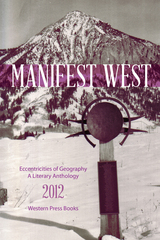
These writers reveal that the land is a character: sometimes a mother, sometimes a joker, never an enemy, though one must take care. The space can be refreshing or oppressive, as the paradox of openness is that it tends to control and confine as much as free us. The weather plans your day. Snowstorms don't negotiate.
The West makes people acutely aware of the absurdity of their smallness, and this feeling is the source of much of the humor in the anthology. The sensation of being tiny, that crazed adrenalin rush and the feeling of your heart beating in your throat, has to make you laugh out loud like a roller coaster. The twenty authors in this collection will take you for an interesting ride.
Contributors to the anthology include: Kirstin Abraham, Genevieve Betts, Shirley Brewer, David Coy, Elizabeth Creely, Mary Christine Delea, Jen Edwards, Thea Gavin, John Haggerty, Brad Johnson, Neal Lewing, Robert McBrearty, Margaret Ozemet, Francis Raven, Greg Robillard, Heather Sappenfield, Sam Smith, Laura Snyder, Caroline Sposto, and Scott Starbuck.

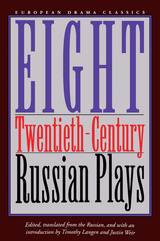
Included in this volume:
Sacred Blood, by Zinaida Gippius; The Unknown Woman, by Alexander Blok; Vladimir Mayakovsky, by Vladimir Mayakosky; The Case of the Entry Room, by Victor Ardov; Squaring the Circle, by Valentin Kataev; Elizaveta Bam, by Daniil Kharms; Grain, by Vladimir Kirshon; and The Guests, by Leonid Zorin.
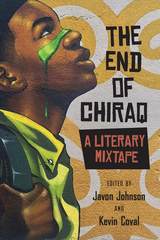
"Chiraq" has come to connote the violence—interpersonal and structural—that many Chicago youth regularly experience. But the contributors to The End of Chiraq show that Chicago is much more than Chiraq. Instead, they demonstrate how young people are thinking and mobilizing, engaged in a process of creating a new and safer world for themselves, their communities, and their city.
In true mixtape fashion, the book is an exercise in "low end theory" that does not just include so-called underground and marginal voices, but foregrounds them. Edited by award-winning poets, writers, and teachers Javon Johnson and Kevin Coval, The End of Chiraq addresses head-on the troublesome relationship between Chicago and Chiraq and envisions a future in which both might be transformed.
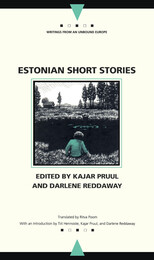
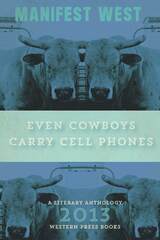
The cowboy that emerges from this collection is multifaceted, as the book juxtaposes cowboys spraying longhorns at a car wash to cowboys advertising services on Craigslist and Pepsi-drinking cowboys riding Amtrak trains. There are portraits of the old cowboys, crotchety coffee-swigging men with too many stories about how things were better four decades ago. However, the figure remains one constructed of loyalties—loyalty to work, loyalty to family, loyalty to animals, loyalty to the land.
The image of the cowboy is vivid in our imagination, insperable from Western mythology, a means to connect ourselves with the wild and rugged individuals we dream we used to be. In this age of computers and cubicles we want to touch and preserve that history, but we must allow for shifting traditions. As the thirty-five authors in this collection will remind you, even cowboys carry cell phones.
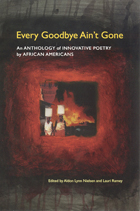
Every Goodbye Ain’t Gone presents the groundbreaking work of many of these poets who carried on the innovative legacies of Melvin Tolson, Gwendolyn Brooks, and Robert Hayden. Whereas poetry by such key figures such as Amiri Baraka, Tolson, Jayne Cortez, Clarence Major, and June Jordan is represented, this anthology also elevates into view the work of less studied poets such as Russell Atkins, Jodi Braxton, David Henderson, Bob Kaufman, Stephen Jonas, and Elouise Loftin. Many of the poems collected in the volume are currently unavailable and some will appear in print here for the first time.
Coeditors Aldon Lynn Nielsen and Lauri Ramey provide a critical introduction that situates the poems historically and highlights the ways such poetry has been obscured from view by recent critical and academic practices. The result is a record of experimentation, instigation, and innovation that links contemporary African American poetry to its black modernist roots and extends the terms of modern poetics into the future.
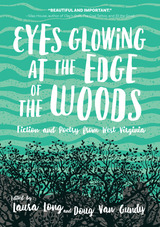
Throughout this collection, we see profound wonder, questioning, and conflicts involving family, sexual identity, class, discrimination, environmental beauty, and peril, and all the sorts of rebellion, error, contemplation, and contentment that an intrepid soul can devise. These stories and poems, all published within the last fifteen years, are grounded in what it means to live in and identify with a complex place.
With a mix of established writers like Jayne Anne Phillips, Norman Jordan, Ann Pancake, Maggie Anderson, and Denise Giardina and fresh voices like Matthew Neill Null, Ida Stewart, Rajia Hassib, and Scott McClanahan, this collection breaks open new visions of all-American landscapes of the heart. By turns rowdy and contemplative, hilarious and bleak, and lyrical and gritty, it is a collage of extraordinary literary visions.
READERS
Browse our collection.
PUBLISHERS
See BiblioVault's publisher services.
STUDENT SERVICES
Files for college accessibility offices.
UChicago Accessibility Resources
home | accessibility | search | about | contact us
BiblioVault ® 2001 - 2024
The University of Chicago Press









